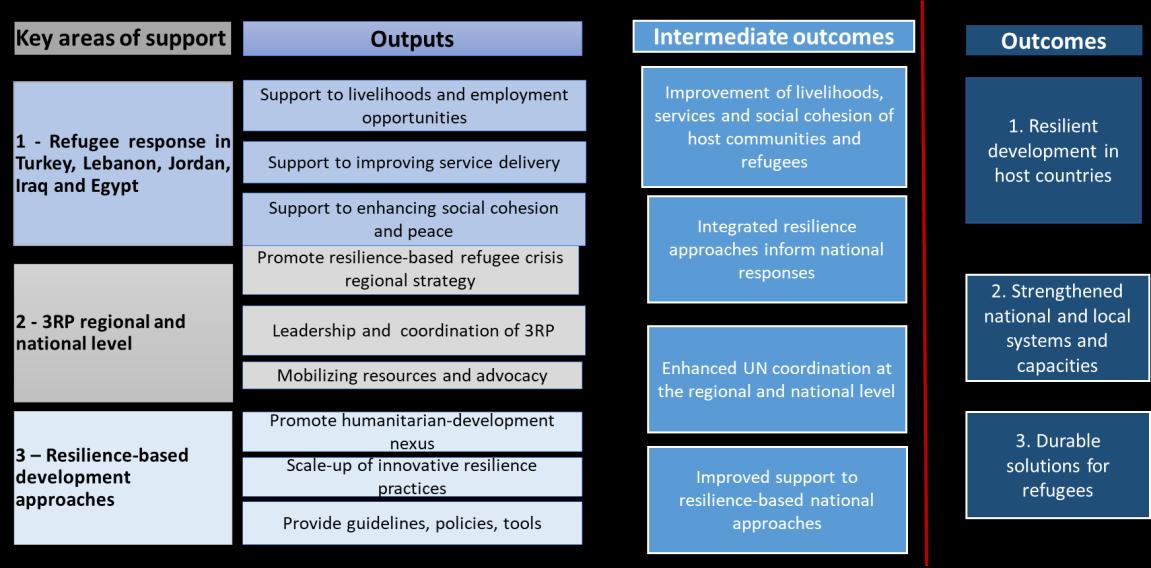EVALUATION SUMMARY Background Refugee crises globally are not only increasing in scale but are protracted and have significant development consequences. According to the Office of the United Nations High Commissioner for Refugees (UNHCR), there are currently more than 79.5 million people displaced worldwide—the highest number on record since statistics have been collected. As a result of the Syrian conflict, there are 5.6 million refugees in the region, severely impacting neighbouring Turkey, Lebanon, Jordan and to a lesser extent Iraq, Egypt and some European Union countries. Since 2010, at least 15 conflicts have significantly increased the number of refugees globally. Although not of the same scale as the Syrian crisis, other refugee crises originating in Sudan, South Sudan, Myanmar, the Democratic Republic of Congo, Central African Republic and Venezuela have slowed both the pace of development and efforts in addressing conflict drivers. In addition to the significant needs of the refugee populations, host countries are facing equally daunting development challenges of their own. UNDP supports a total of about 40 countries that are hosting refugees and/or are countries of origin, with the aim of strengthening government processes and capacities to address the developmental consequences of the influx of refugees on the host communities, facilitating the inclusion of refugees in national development planning, and improving conditions for both refugees and host communities. For the Syrian refugee crisis response, UNDP supported national and local governments in host countries, in a diversity of contexts, to address the development impacts of the crisis. With the Office of the United Nations High Commissioner for Refugees (UNHCR), UNDP coordinated the Regional Refugee Response Plan (3RP) which provided a framework for the activities of United Nations and other agencies at the regional and country levels, to address humanitarian and development issues simultaneously, using a resilience approach. The 3RP is considered a paradigm shift from predominantly humanitarian response plans. The Independent Evaluation Office (IEO) of the United Nations Development Programme (UNDP) has evaluated UNDP support to the Syrian refugee crisis response and promotion of an integrated resilience approach. Part of the IEO workplan approved by the Executive Board at its first regular session of 2018, the evaluation assessed the contribution of UNDP to the Syrian refugee crisis response and the 3RP at the national and regional levels. While the primary focus of the evaluation was the Syrian refugee crisis response, for a broader understanding of UNDP support to refugee response, the evaluation also assessed the UNDP positioning and approaches in its response to other refugee crises. The evaluation assessed the extent to which the UNDP resilience-based development approach contributed to bridging the humanitarian and development divide; and the extent to which resilience-based development approaches have underpinned the Syrian refugee crisis response framework as well as other UNDP refugee responses and corporate frameworks. The evaluation will be presented to the Executive Board at the first regular session of 2021. The evaluation will contribute to the consolidation of the Syrian refugee crisis response as well as the development of corporate refugee response programming and strategies. The evaluation will strengthen the accountability of UNDP to global, regional and national programme partners and the Executive Board.
8



